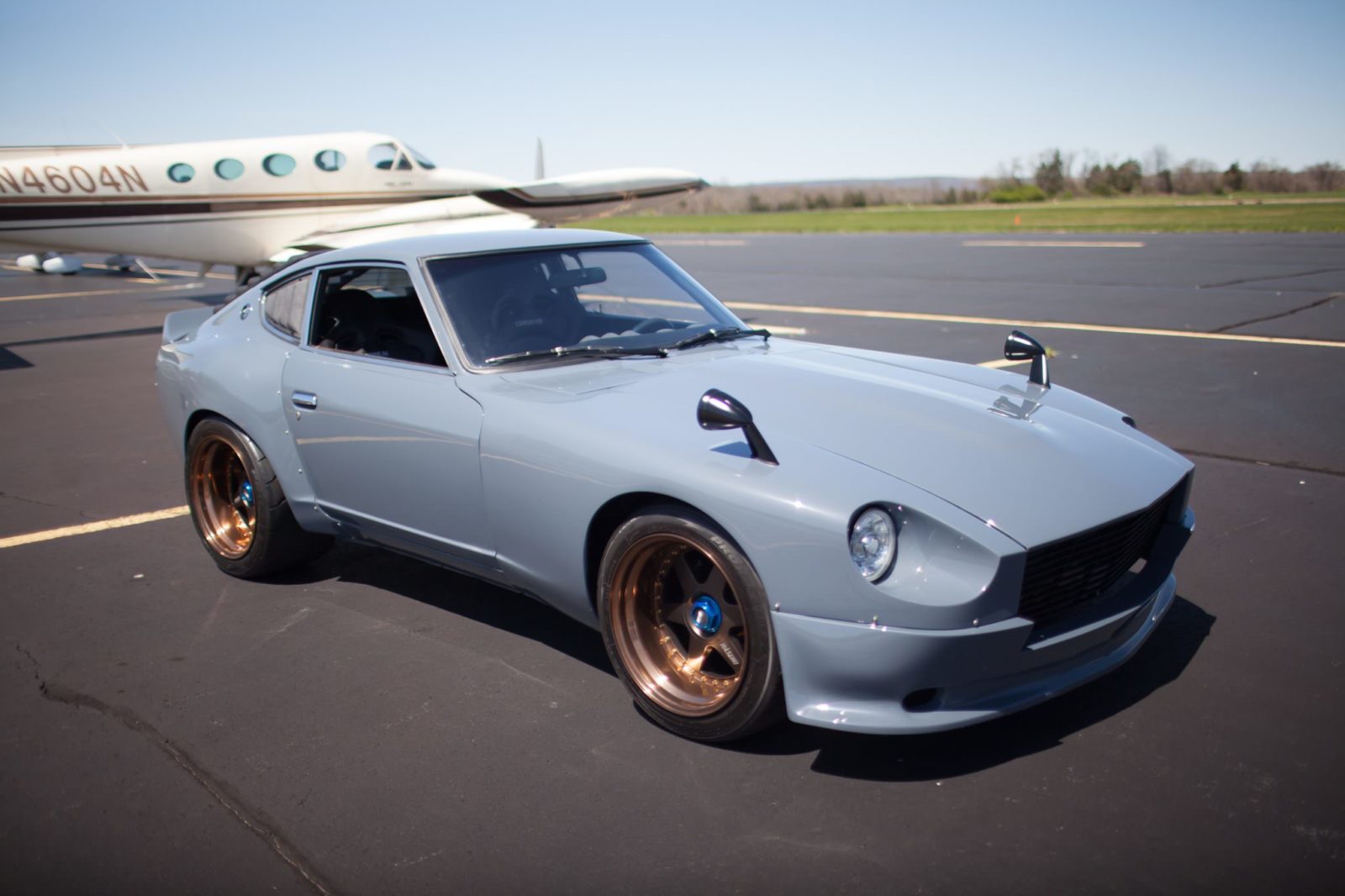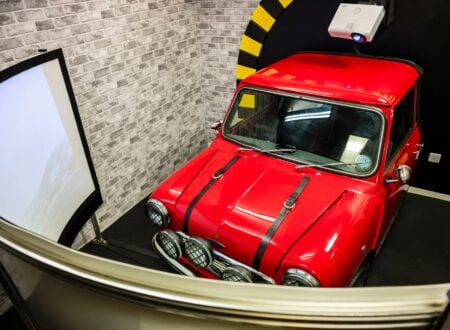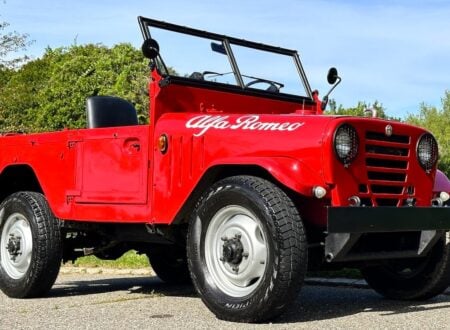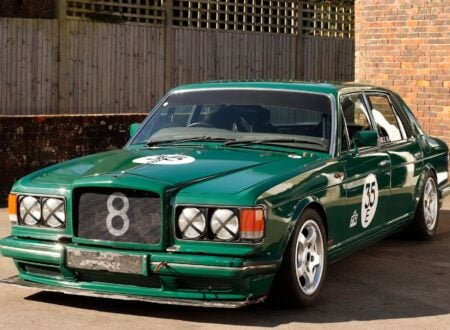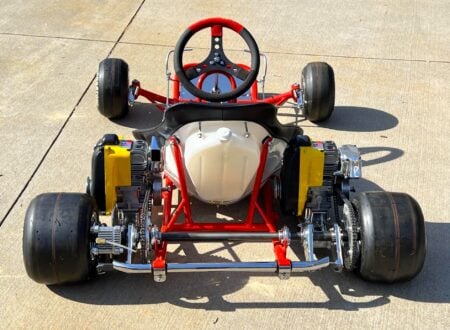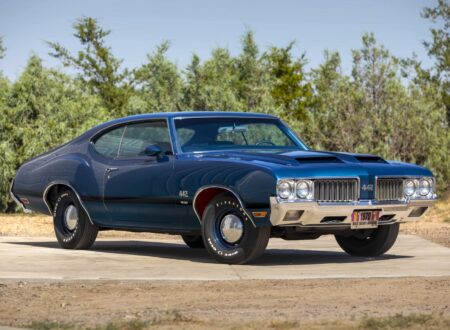This 1974 Datsun 260Z is now significantly quicker than it was when new, thanks to a slew of modifications including a 400+ bhp Corvette LS6 sending power back through a Tremec T56 6-speed manual transmission to a limited-slip differential.
A full gamut of changes have been made to the car to ensure it can handle the significant power increase, these include new brakes, suspension, chassis modifications, and body modifications.
Fast Facts – A Corvette-Powered Datsun 260Z
- The Datsun 260Z was released in 1974, it had a larger 2.6 liter engine compared to the 2.4 liter engine used in the original 240Z.
- Apart from the engine, a number of other changes were made to the 260Z. Some of the interior ergonomics were redesigned, the chassis was given longer frame rails for more strength and stiffness, and a rear sway bar was fitted.
- The 260Z was originally fitted with the Nissan L26 engine, with a swept capacity of 2,565cc (156.5 cubic inches). In the USA the power output was limited to 139 hp due to emissions requirements, the rest of the world got the 165 hp version.
- The car you see here has been given a major set of modifications including a 400+ bhp Corvette V8, uprated suspension and brakes, an LSD, and a zTrix widebody kit.
The Arrival Of The Datsun Z Series
Beginning with the Datsun 240Z in 1969, the Z series of sports cars from Nissan/Datsun are now viewed as among the most important Japanese sports cars in the world from this early formative period.
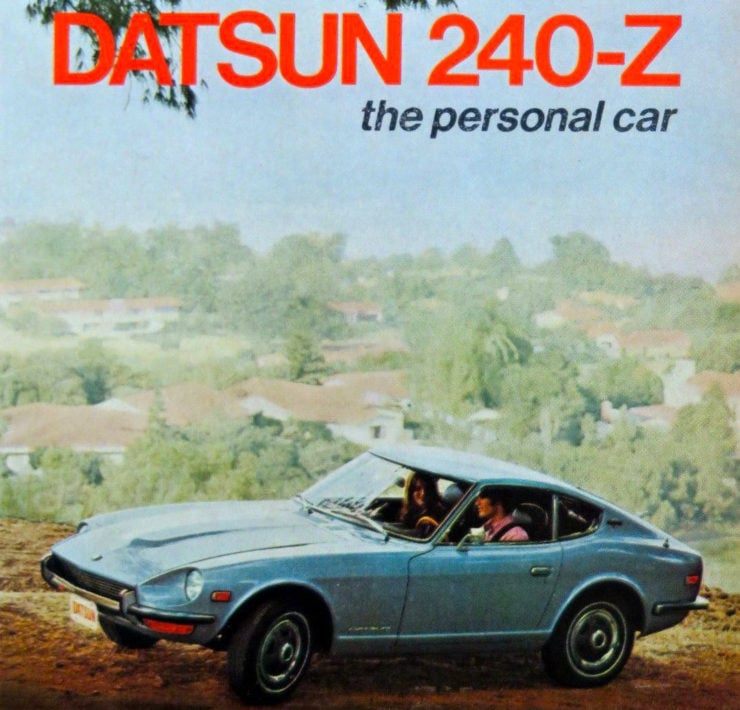

In the 1960s Japanese automobiles were making inroads into the US and European markets, they were generally seen as small, cheap, almost disposable cars by many. It wasn’t until the appearance of halo cars like the Toyota 2000GT, Datsun 240Z, and Mazda Cosmo that the perceptions of the buying public began to shift.
Of those three models, the 240Z was the most practical. Whereas the Toyota 2000GT was expensive and the Mazda Cosmo was powered by an unproven Wankel rotary engine, the Datsun 240Z cost about the same as an MGB GT and it was powered by a rock solid 2.4 liter straight-six.
The styling of the 240Z has long been a point of controversy, some claim it was entirely developed in-house by a team led by Yoshihiko Matsuo, and others claim that it was based on designs by Dr Albrecht Graf von Goertz.
Regardless of who deserves the bulk of the credit, the car is undeniably beautiful. The front end is reminiscent of the Jaguar E-Type and the rear bears some resemblance to the Porsche 911 – these were two of the top sports cars in the world in the late 1960s when the car was being styled.
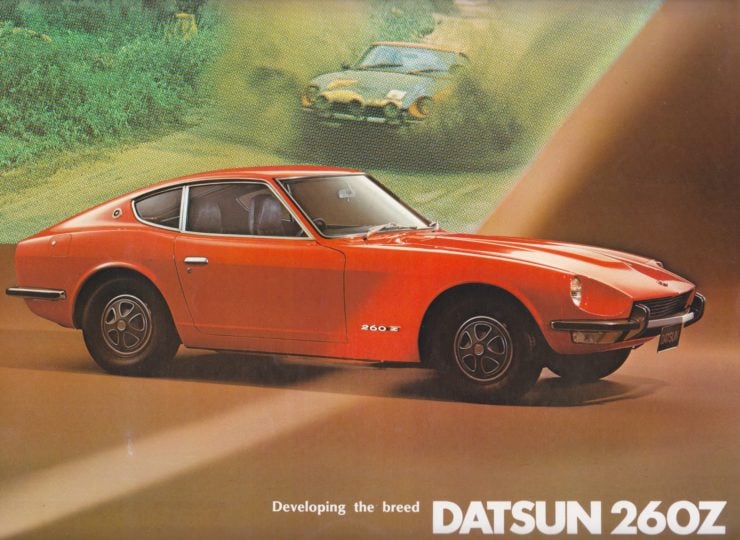

Under the skin the 240Z was no less impressive, it has independent front and rear suspension, front disc brakes, and a straight-six with a single overhead cam and a crossflow head. The interior of the car was well appointed, and perhaps most importantly the car was very reliable – not fickle like so many exotics can be.
The Datsun 260Z
The Datsun 240Z sold well between 1969 and 1974 when it was replaced with the Datsun 260Z. The 260Z included a number of upgrades, not the least of which was a displacement increase from 2,393cc to 2,565cc.
This displacement change was in part due to federal emissions regulations which forced a reduction in ignition timing and compression ratio, resulting in less power.
As a result, the 260Z (in the USA) actually produced slightly less power than the 240Z. That said, the aftermarket offered a number of modifications to reclaim this lost horsepower and to add plenty more.


There were a few other changes made between the 240Z and 260Z. The interior ergonomics and styling were revised, and chassis stiffness was improved thanks to longer, stronger frame rails.
The 260Z would be replaced by the 280Z a year later in 1975 in the US market, though it would remain available until 1978 in many global markets. As a result it’s now one of the rarer Z series cars from the era.
The Datsun 260Z Shown Here
The 260Z you see here has been modified extensively, great care has been taken to ensure that the car is better able to handle the almost 300% increase in power over its factory configuration. The Nissan straight-six is long gone, now replaced with a fire breathing Chevrolet LS6 Corvette V8 capable of well over 400 bhp.
This engine has been modified further, with the addition of a performance camshaft and valve train, long-tube exhaust headers, an AEM high-flow fuel pump, an ACT flywheel, and a Mishimoto radiator.
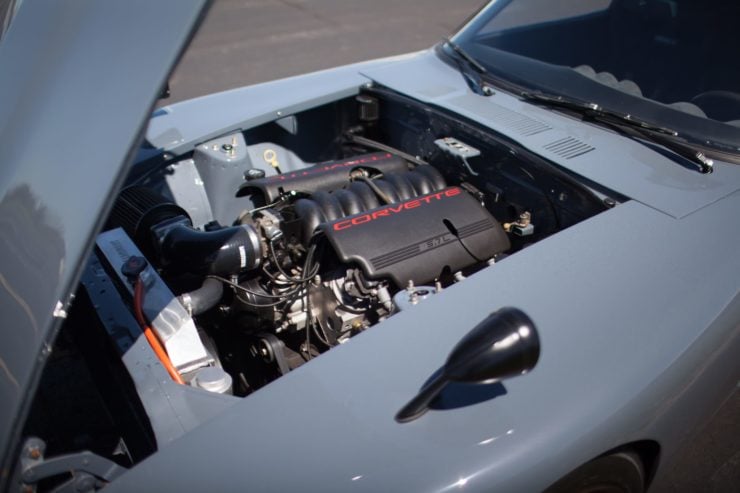

Power is sent back through a Tremec T56 6-speed manual transmission into a limited-slip differential from a Nissan Q45 with 3.54:1 gearing.
Of course, this major power increase necessitated a number of other changes. The chassis was further strengthened with a set of Bad Dog Parts frame rails, an Apex Engineered tubular front subframe was installed along with Apex Engineered control arms, and the car now has ST Suspension sway bars, and BC Racing coilover suspension on all four corners.
The original brakes were never going to cope, so they’ve been replaced with Wilwood calipers on uprated rotors front and back, with a Wilwood brake master cylinder.
The car has been finished with a zTrix 280YZ widebody kit, and it’s now being offered for sale out of Watchung, New Jersey.
If you’d like to read more about the car or place a bid you can visit the listing here.
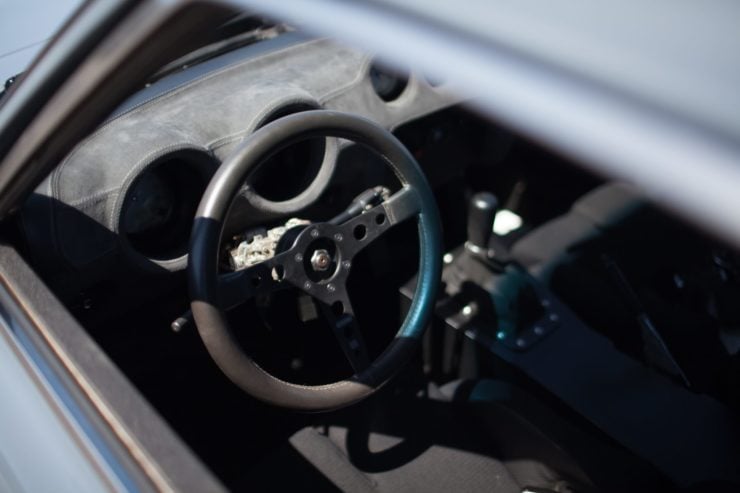
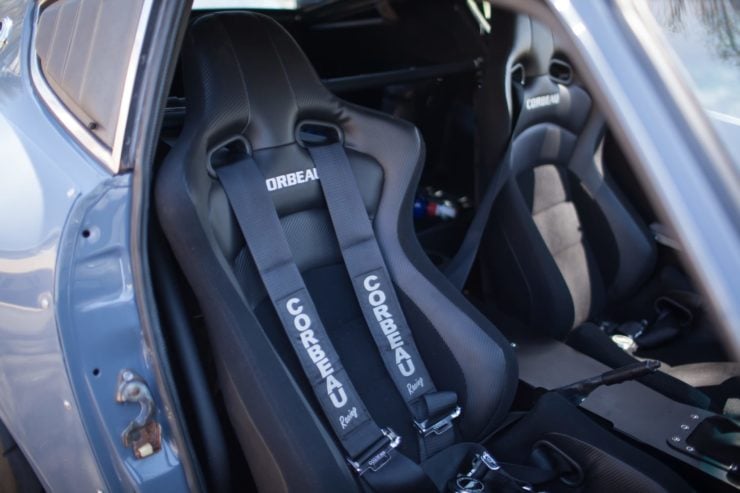
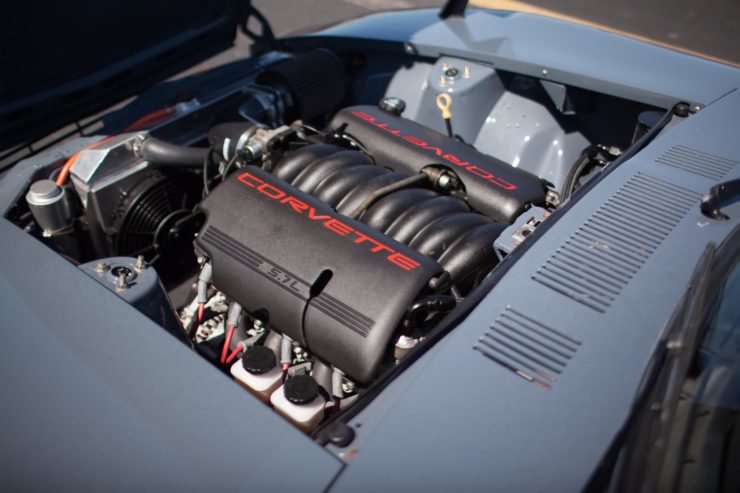
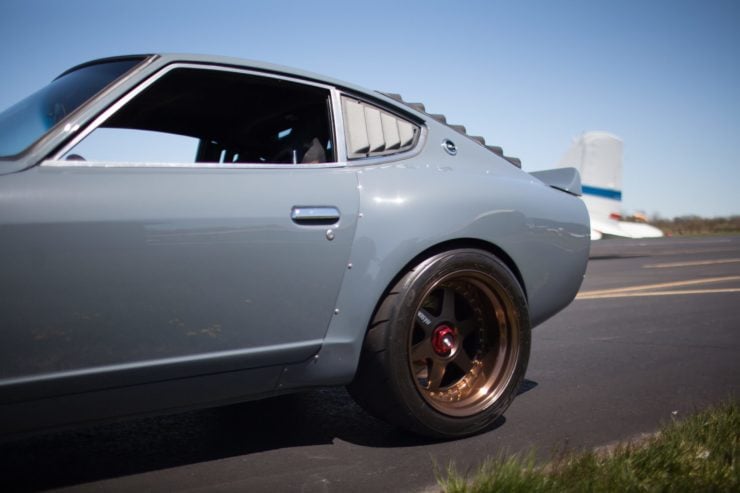
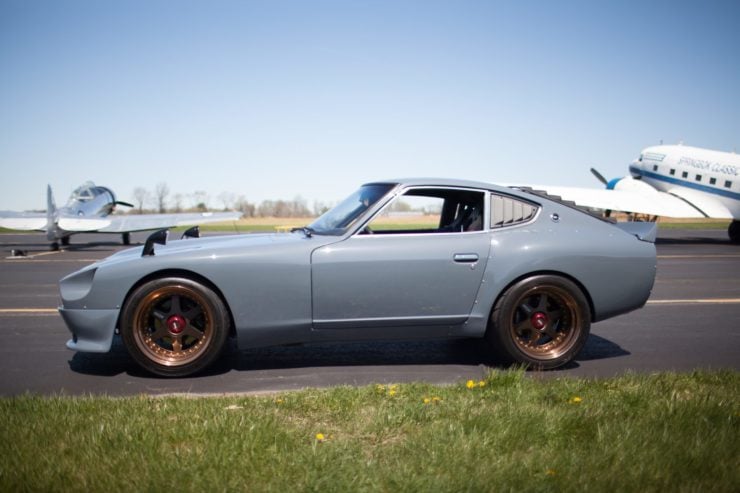
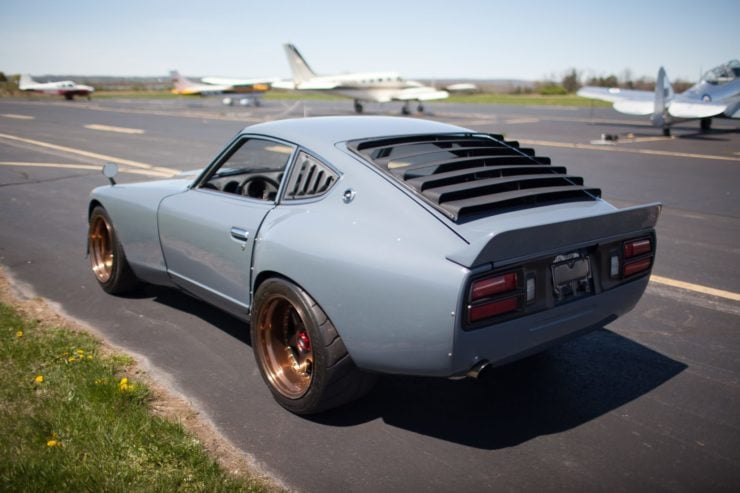
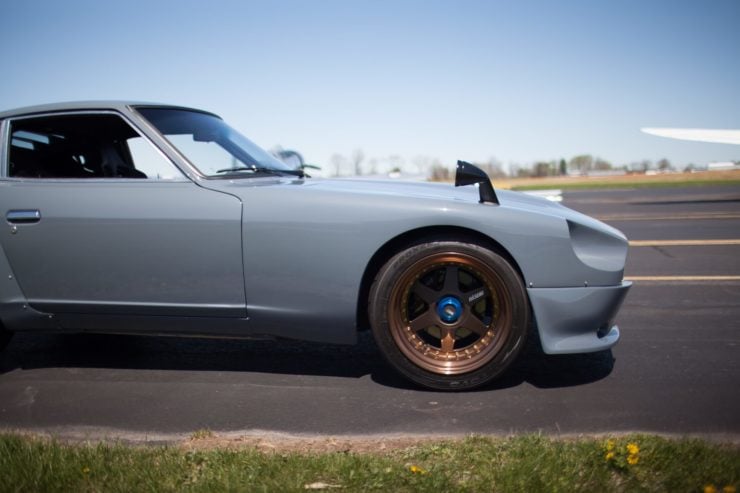


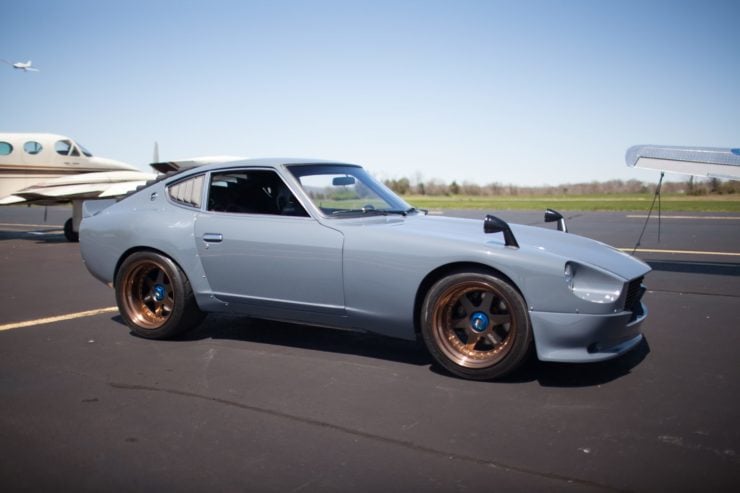

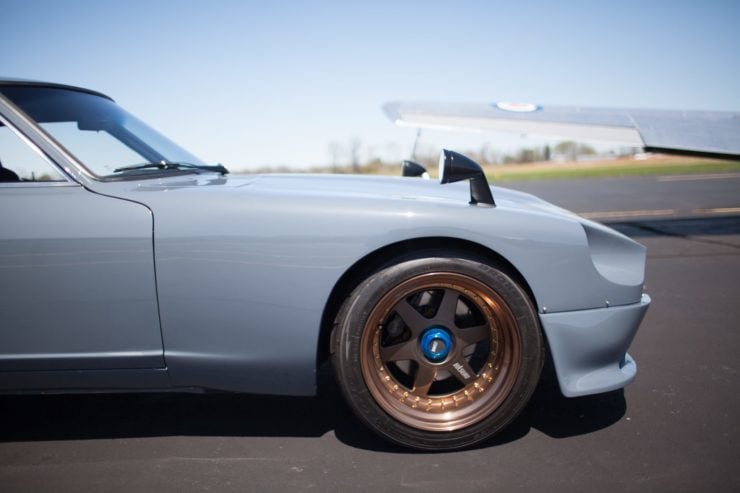
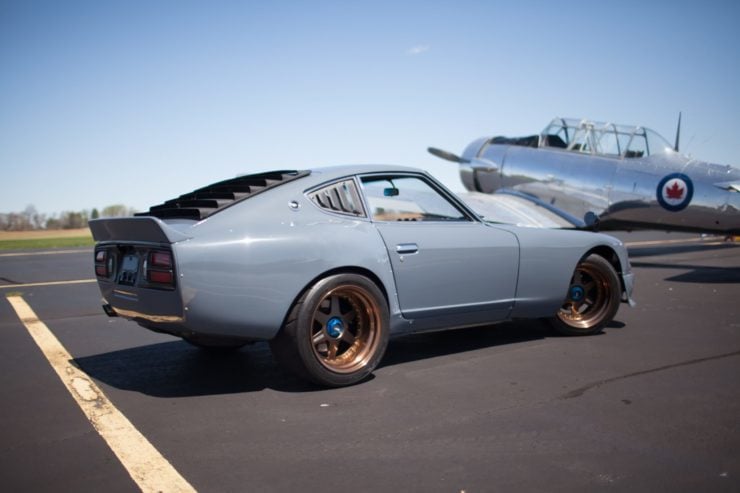
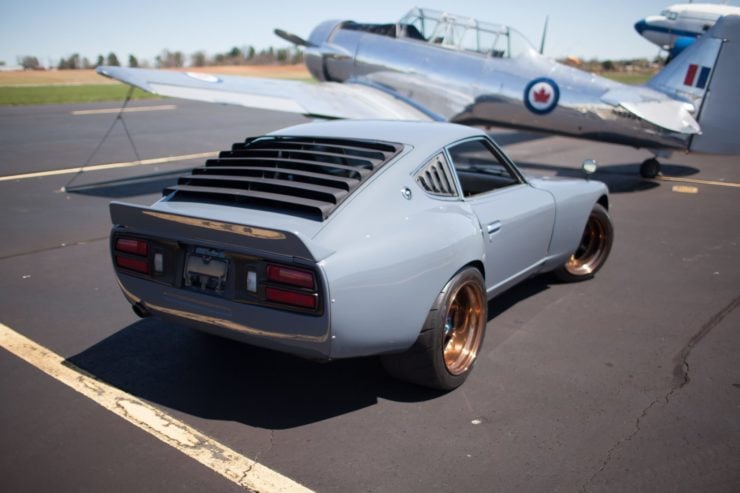
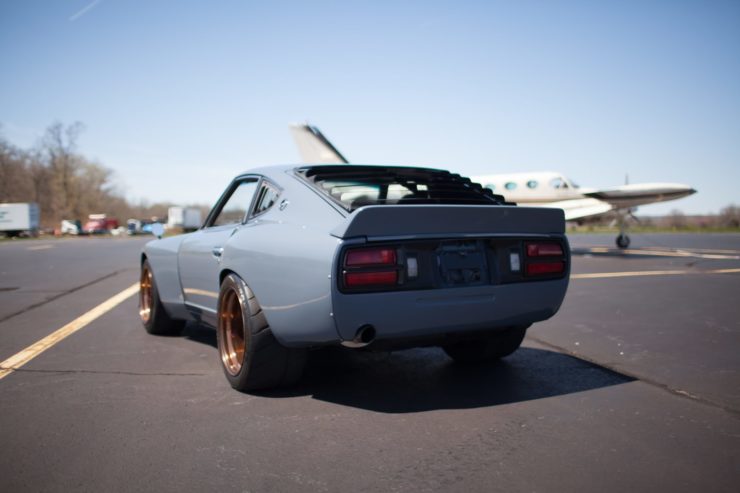
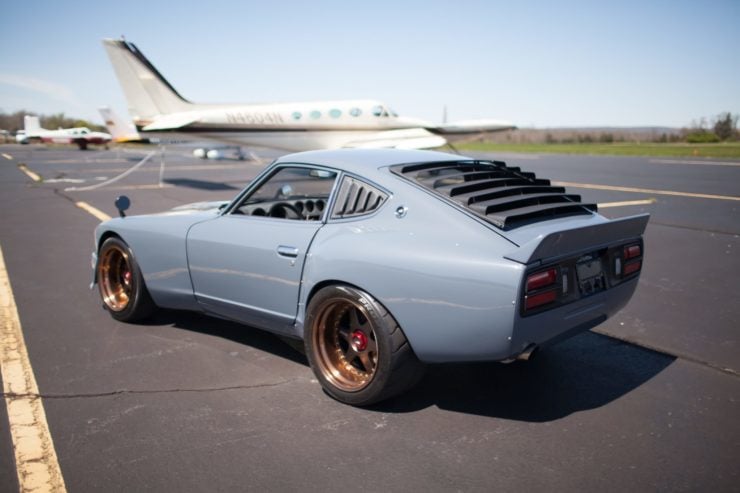
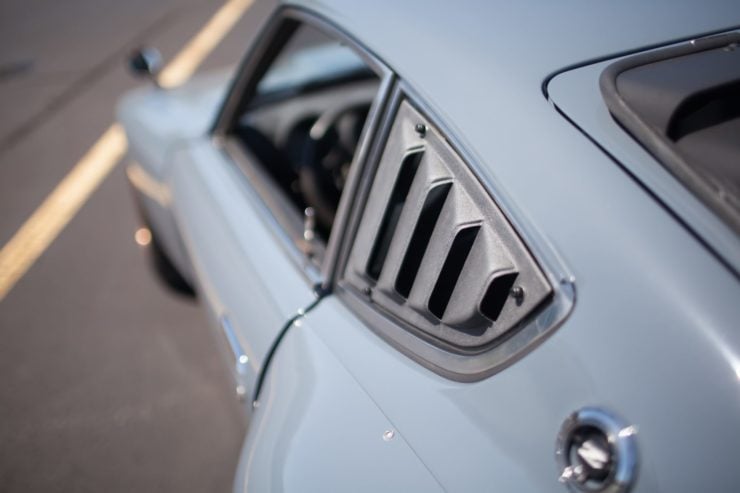
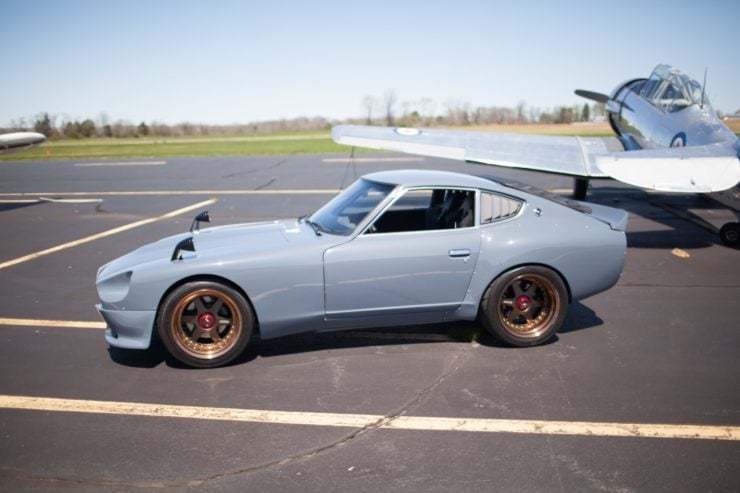
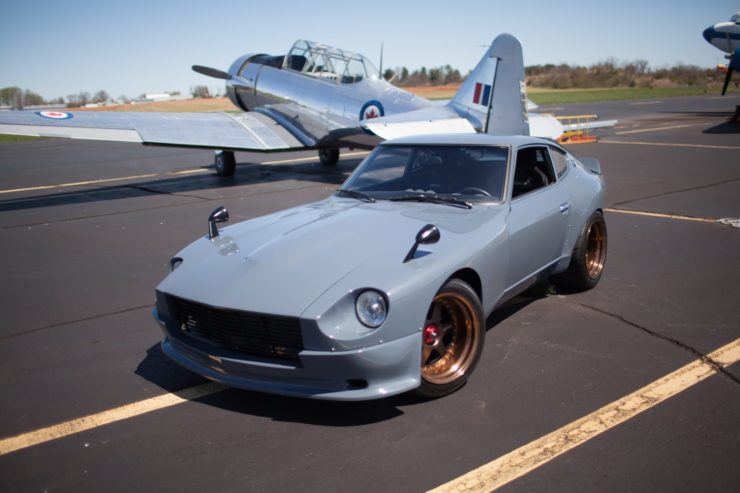
Images courtesy of Bring A Trailer

